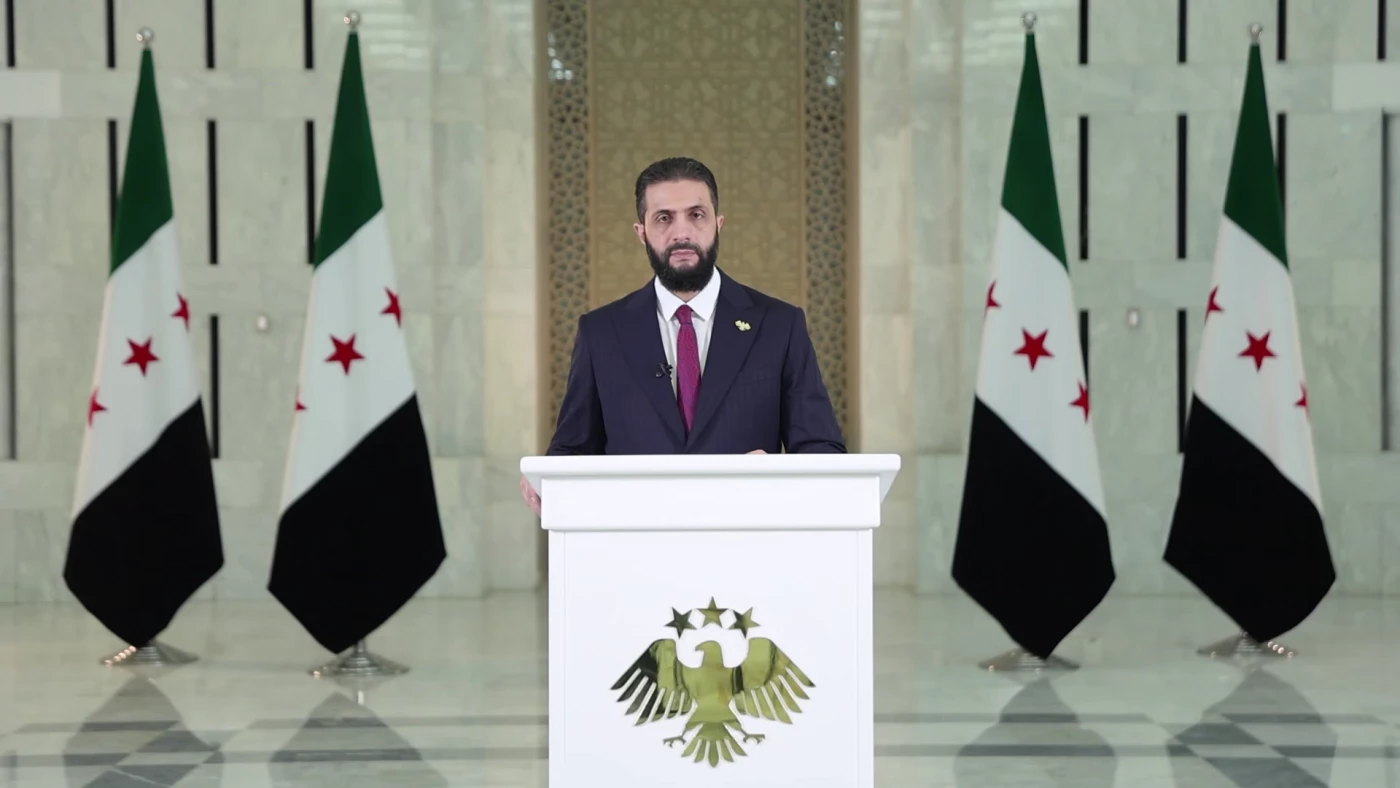ERBIL, Kurdistan Region of Iraq – Syrian President Ahmed al-Sharaa on Saturday said the events in Suwayda marked “a dangerous turning point” for the security and political situation in the country, while disavowing the violations committed during the clashes.
Clashes continue between Bedouin tribal fighters and members of the Druze community in Suwayda, despite the Syrian government announcing a truce in the province on Wednesday.
The Syrian Presidency late Friday announced authorities are working to deploy “a specialized force” to the southern city of Suwayda in an attempt to bring an end to the bloody sectarian conflict.
On Saturday, the presidency declared “a comprehensive and immediate ceasefire” in Suwayda, urging all parties to abide by the resolution, and warned that any violations of the ceasefire will be met with legal measures.
In a televised speech shortly after the ceasefire declaration, Sharaa said that the intervention of the Syrian state was necessary to prevent the clashes from spiraling out of control, while blaming Israeli intervention for exacerbating the situation.
“The Syrian government managed to calm the situation despite its difficult circumstances. However, Israeli intervention pushed the country into a dangerous phase, threatening its stability as a result of the blatant bombing of the south and government institutions in Damascus,” said Sharaa.
The clashes in Suwayda have prompted frequent Israeli strikes on Syria in recent days, claiming it is in support of the Druze minority. At least three people were killed and 34 others injured in an Israeli attack on central Damascus on Wednesday.
US ambassador to Turkey and special envoy to Syria, Tom Barrack, announced early Saturday that Israeli Prime Minister Benjamin Netanyahu and Syria’s Sharaa have agreed to a ceasefire, supported by Washington.
The Syrian president thanked the US for its support for Syria “during these difficult times.”
Sharaa accused armed groups in Suwayda of launching “retaliatory attacks against the Bedouin and their families,” after state forces withdrew from the province on Wednesday, claiming that that the attacks included violations of human rights.
“We disavow all crimes and violations that occurred, whether inside or outside Sweida, and we emphasize the importance of achieving justice and enforcing the law,” said the Syrian president.
He stressed that the Druze constitute “a fundamental pillar of the Syrian national fabric,” claiming that the recent escalations have “proven that the people of Suwayda, from all walks of life, stand with the state and reject partition plans.”
“We should not persecute the entire Druze community for the actions of a small group who have slipped into positions that do not represent the history of this ancient community,” Sharaa added.
He reiterated that the Syrian government remains committed to protecting all minorities in the country, vowing that all violators, regardless of affiliations, will be held accountable.
The Syrian health ministry on Friday said that at least 260 people have been killed and nearly 1,700 injured in the clashes in Suwayda. The UK-based Syrian Observatory for Human Rights (SOHR) put the death toll at 718.
Syria has fallen to sectarian strife time and again since Hay’at Tahrir al-Sham (HTS) rebels in December overthrew the Bashar al-Assad regime. Despite vows of inclusivity, minorities remain cautious of the new regime in power.
The Druze are a religious minority that lives in Syria and other parts of the Levant, subscribing to an Abrahamic faith and identifying themselves as al-Muwahhidun (the monotheists).


 Facebook
Facebook
 LinkedIn
LinkedIn
 Telegram
Telegram
 X
X



